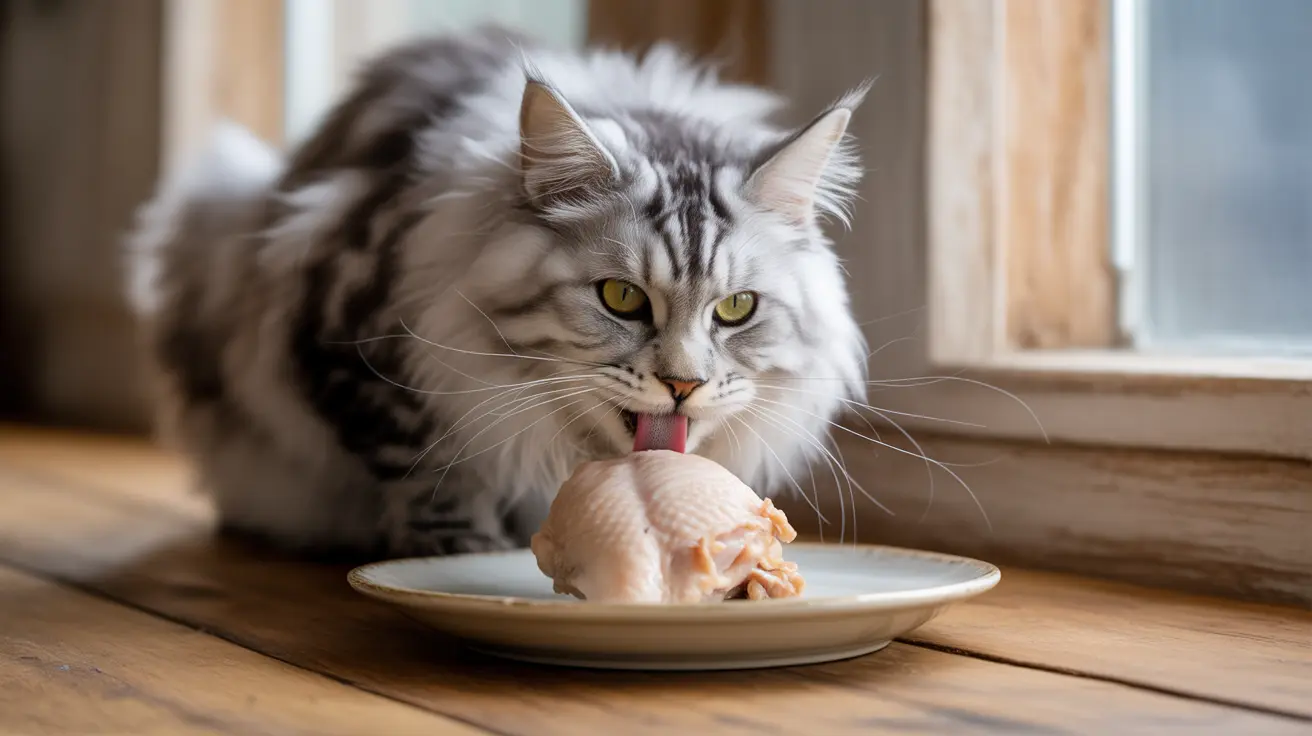When you run out of cat food or face an emergency situation, knowing what you can safely feed your cat becomes crucial. While commercial cat food is the ideal choice for long-term feeding, understanding safe cat food substitutes can help you navigate temporary feeding challenges without compromising your pet's health.
In this comprehensive guide, we'll explore nutritionally appropriate alternatives to regular cat food, essential dietary requirements for cats, and important safety considerations to keep in mind when preparing temporary food substitutes for your feline friend.
Understanding Your Cat's Essential Nutritional Needs
Cats are obligate carnivores, meaning they require specific nutrients found primarily in animal tissues. Unlike dogs or humans, cats cannot survive on a vegetarian or vegan diet, as they need particular amino acids like taurine and arginine that are only found in animal proteins.
Any cat food substitute must account for these fundamental nutritional requirements to prevent health issues, even during short-term feeding situations.
Safe Emergency Food Options for Cats
Protein-Rich Alternatives
When commercial cat food isn't available, these protein sources can serve as temporary substitutes:
- Cooked, plain chicken or turkey (without bones, skin, or seasoning)
- Lean beef or lamb, thoroughly cooked
- Plain, cooked fish (occasional use only)
- Scrambled or boiled eggs without additives
Supplementary Foods
These foods can complement protein sources in small amounts:
- Plain, canned pumpkin puree (no spices)
- Cooked, pureed carrots
- Small amounts of plain, cooked sweet potato
- Tiny portions of plain, cooked green beans
Preparing Safe Cat Food Substitutes
When preparing temporary cat food substitutes, follow these essential guidelines:
- Remove all bones before serving
- Avoid seasonings, oils, and additives
- Cook all meat thoroughly
- Serve food at room temperature
- Store unused portions properly in the refrigerator
- Discard any uneaten food after 4 hours
Foods to Avoid
Never feed your cat these dangerous items:
- Onions, garlic, or chives
- Raw eggs or meat
- Chocolate or caffeine
- Grapes or raisins
- Dairy products (most cats are lactose intolerant)
- Dog food (lacks essential cat nutrients)
- Seasoned or processed human foods
Long-Term Considerations
While temporary substitutes can work in emergencies, they shouldn't become a long-term solution. Commercial cat food is specifically formulated to meet all your cat's nutritional needs. If you need to feed substitutes for more than a few days, consult your veterinarian for guidance on proper supplementation.
Frequently Asked Questions
What human foods are safe to feed my cat as a temporary substitute for commercial cat food?
Safe human foods include plain cooked chicken, turkey, or lean beef, boiled eggs, and small amounts of plain canned pumpkin. All meat should be thoroughly cooked without seasonings or additives.
How can I prepare a balanced homemade cat food substitute in an emergency?
In emergencies, combine lean cooked meat (like chicken) with a small amount of plain pumpkin puree and a scrambled egg. This provides protein and fiber, though it's not nutritionally complete for long-term use.
Which common household foods should I avoid feeding my cat due to toxicity or nutritional deficiencies?
Avoid onions, garlic, chocolate, grapes, raisins, raw meat or eggs, seasoned foods, and dairy products. These can be toxic or cause digestive issues in cats.
Can I use dog food or plant-based diets as a substitute for cat food?
No, neither dog food nor plant-based diets meet cats' specific nutritional needs. Cats require certain amino acids like taurine that are only found in animal proteins.
How long can my cat safely eat a homemade or emergency cat food substitute before consulting a vet?
While emergency substitutes can work for 2-3 days, consult a veterinarian if you need to continue beyond this period. Long-term homemade diets require proper nutritional balancing and supplementation.
Conclusion
While having safe cat food substitutes on hand is important for emergencies, these should only be temporary solutions. Always return to a complete and balanced commercial cat food as soon as possible, and consult your veterinarian if you need to use substitutes for an extended period.






